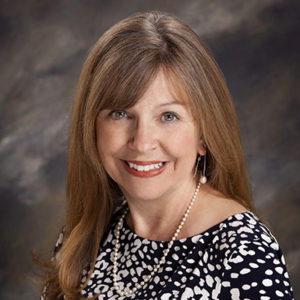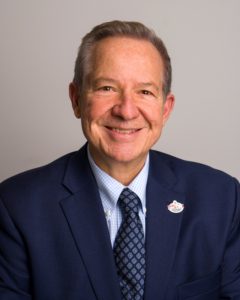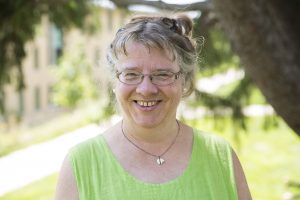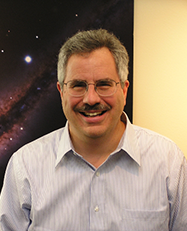Four faculty receive 2021 Hilldale Awards
MADISON – Each year, the Secretary of the Faculty recognizes four professors from the University of Wisconsin–Madison for distinguished contributions to research, teaching and service.
The Hilldale Awards go to one faculty member each from the arts and humanities, social sciences, physical sciences and biological sciences, selected from nominations by department chairs. The winners were recognized at the April 5 Faculty Senate meeting and are awarded $7,500.
This year’s Hilldale Award winners are: Susan Ellis Weismer , Michael Fiore, Sabine Gross and Robert Mathieu.
Oros Family Chair and Professor of Communication Sciences & Disorders

Susan Ellis Weismer
Susan Ellis Weismer is an expert on language learning disorders in children. She has contributed new insights into three major language-associated disorders: Autism Spectrum Disorder, developmental language disorder, and children who are late to talk. Her work has uncovered previously hidden patterns of learning in children living with these disorders, which has contributed not only to a better understanding of their causes but also to their treatment.
Over her 37 years at UW–Madison, Ellis Weismer has taught 11 different courses, from large-enrollment undergraduate classes to high-level graduate seminars, for which she receives consistently high praise from students for her passion and expertise. She has mentored more than 30 students over her career, with many going on to make their own significant contributions to the field.
As a leader in the department, including as chair, Ellis Weismer helped grow the program through faculty searches and mentored several junior faculty. And for 11 years, she served as associate dean for research in the College of Letters & Science, steering the research enterprise before electing to return to the department as a full-time faculty member.
“The CSD department is delighted with the Hilldale award going to Professor Susan Ellis Weismer, an internationally renowned scholar in the area of childhood language development and disorders,” says department chair Ruth Litovsky.
Hilldale Professor of Medicine

Michael Fiore
Michael Fiore has spent his career fighting to end the use of tobacco, the leading cause of preventable death in the U.S. As the founding director of the UW Center for Tobacco Research and Intervention, Fiore has combined scientific research with public policy interventions to change how the medical system cares for tobacco users.
Fiore led the successful push to add tobacco use as a vital sign checked every day in doctor’s offices around the country, which helps physicians identify smoking and intervene for the benefit of patients. He also led efforts to discover the best evidence-based methods to help people quit smoking. Smoking has declined considerably in the U.S. thanks in part to Fiore’s work.
“His work has influenced the care provided by nearly every health care professional in Wisconsin and in the United States,” says Department of Medicine Chair Lynn Schnapp.
Through the UW-CTRI, Fiore has trained hundreds of undergraduate students and dozens of graduate students and postdoctoral researchers, preparing the next generation of physicians and researchers to continue treating tobacco use.
Griebsch Bascom Professor of German

Sabine Gross
Sabine Gross is a scholar whose research spans poetry, theater, literary analysis, philosophy and many other fields. She has authored dozens of publications on modern writers, Enlightenment thinkers, and visual culture. She helped spur the development of new fields of inquiry with wide-ranging and influential scholarship ahead of its time.
For a quarter-century, Gross has led a unique class in which students intensively study and then perform a German-language play. Through the course, Gross connects with other German programs across the UW–System and with German speakers in the state and often arranges a residency for German directors. For this and a diverse array of other undergraduate and graduate courses, Gross has received high marks from students and was awarded the Chancellor’s Distinguished Teaching Award in 1999.
Gross has also served as director of the Honors Program in the College of Letters & Science, which serves more than 1,500 students. Since 2015, she has worked to expand and update the program. Over the last year, Gross ushered the Honors Program through the pandemic, including by developing small-group seminars to maintain close student-faculty relationships.
“Sabine Gross is well known and admired for her brilliant interdisciplinary scholarship, her innovative and inspiring teaching, and her unparalleled service, both within the Department of German, Nordic and Slavic and across campus,” says department chair Thomas DuBois.
Albert E. Whitford and Vilas Distinguished Achievement Professor of Astronomy

Robert Mathieu
Over more than three decades on campus, Robert Mathieu has helped refine and expand our understanding of how stars evolve. He has led international collaborations of astronomers to explain the evolution of stars known as blue stragglers, yellow giants and sub-subgiants. Mathieu is also an expert on the formation of binary star systems and has helped explain how these systems evolve in their early stages.
Mathieu has also been a leader in science education. In 2003, he founded the Center for the Integration of Research, Teaching and Learning with a $10 million National Science Foundation grant. The center and its learning community trains 500 future faculty each year to excel in both research and teaching. Mathieu helped expand the CIRTL network from three founding universities to 38 today.
For seven years, Mathieu served as director of the Wisconsin Center for Education Research in the School of Education. He expanded the center’s research portfolio and launched centers focused on reaching new populations. Mathieu was also a founding member behind the development of the WIYN Observatory in Arizona, a major addition to the astronomical research capabilities of the university.
“(Professor) Mathieu is a remarkable, transformative force within the University of Wisconsin–Madison; he has left significant, impactful and lasting marks through all of his engagements with the university’s research, teaching and service missions,” writes astronomy department chair Rich Townsend in his nominating letter.




